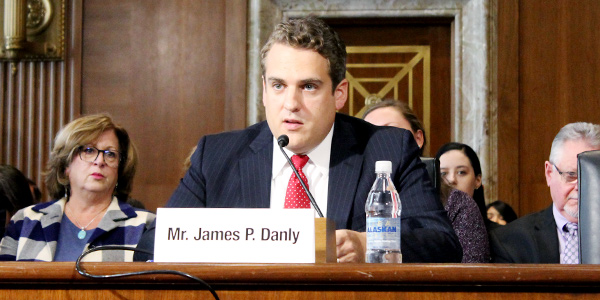FERC last week opened an investigation under Federal Power Act Section 206 into the justness and reasonableness of Basin Electric Power Cooperative’s 2020 rate schedule and the wholesale power contracts between the cooperative and 19 of its members (ER20-2441, ER20-2442, EL20-68).
The commission found Basin’s rate schedule and power contracts raised factual issues that should be addressed through hearing and settlement judge procedures.
FERC said it accepted Basin’s 2020 filings because it considered them to be initial rates, effective Sept. 15. The commission disagreed with intervenors’ arguments that a lack of withdrawal and termination procedures rendered the wholesale contracts unjust and unreasonable, saying each contract includes provisions requiring notice of termination for the contract term’s end.
Commissioner James Danly dissented in the order, saying he didn’t agree with the commission’s decision to set for hearing whether the Mobile-Sierra presumption should attach to the wholesale contracts. Under Mobile-Sierra, FERC must presume that the electricity rate set in a freely negotiated wholesale contract meets the FPA’s “just and reasonable” requirement. The presumption may be overcome only if the commission concludes that the contract seriously harms the public interest.
“My disagreement … stems from my general disagreement as to the analysis applied by the commission in considering whether and when the Mobile-Sierra presumption should apply,” Danly wrote. He noted that Basin’s counterparties “almost uniformly agree[d] that ‘without a doubt’” the wholesale contracts were freely negotiated. Only Tri-State Generation and Transmission Association asserted its contract was “not accomplished on an even playing field,” he said.
“Given the near universal support for the [contracts] other than Tri-State’s generalized complaint about bargaining positions, there is no credible claim of infirmity in the [contracts’] formation … that would lead us to conclude that they do not represent the fully voluntary agreement of the parties,” Danly said. “This issue should not be set for hearing.”
FERC Combines Tri-State Membership Fee Dockets
FERC on Sept. 11 accepted Tri-State’s methodology for members’ one-time payments to become partial-requirements members, but it also established hearing and settlement procedures over the co-op’s buy-down payment (BDP) calculation, subject to refund.
The commission combined the proceeding with another docket involving Tri-State that it set for hearing in June concerning the cooperative’s proposed contract-termination payment (CTP) methodology for computing member exit fees (ER20-2417, ER20-1559). (See FERC Sets Tri-State’s Exit-fee Rules for Hearing.)
FERC found there were several common issues regarding Tri-State’s use of the two methodologies and agreed with United Power, a Tri-State member, to consolidate the proceedings.
Tri-State’s BDP methodology is designed to give its utility members additional flexibility for the self supply of power and more local renewable energy development.
In February, Tri-State’s board agreed to hold an open season to allocate 300 MW of systemwide member self-supply capacity for future member partial requirements contracts, equal to 10% of Tri-State’s total demand. Under previous rules, members were limited to self supplying only 5% of their power, with an additional 2% through community solar.
The cooperative said the BDP methodology establishes a framework for holding partial requirements customers responsible for the costs incurred in permitting them to switch to partial requirements service without imposing a financial burden on the remaining full-requirements members.
Tri-State said the proposed methodology uses the same underlying mark-to-market method as the CTP methodology. The mark-to-market method is a planning approach, Tri-State said, with the departing utility member’s required BDP based on a forecasted difference between the cooperative’s long-term financial forecast (LTFF) business-as-usual case and load-loss case.
FERC said its preliminary analysis indicated the proposed methodology had not been shown to be just and reasonable.
Several Tri-State members protested in the docket, raising concerns that certain material terms and conditions are referenced in the cooperative’s transmittal letter but are not included in the rate schedule. FERC found that terms and conditions of Tri-State’s proposal to impose a full transmission service requirement on partial requirements members needs to be filed with the commission under FPA Section 205 and included in its rate schedule.






